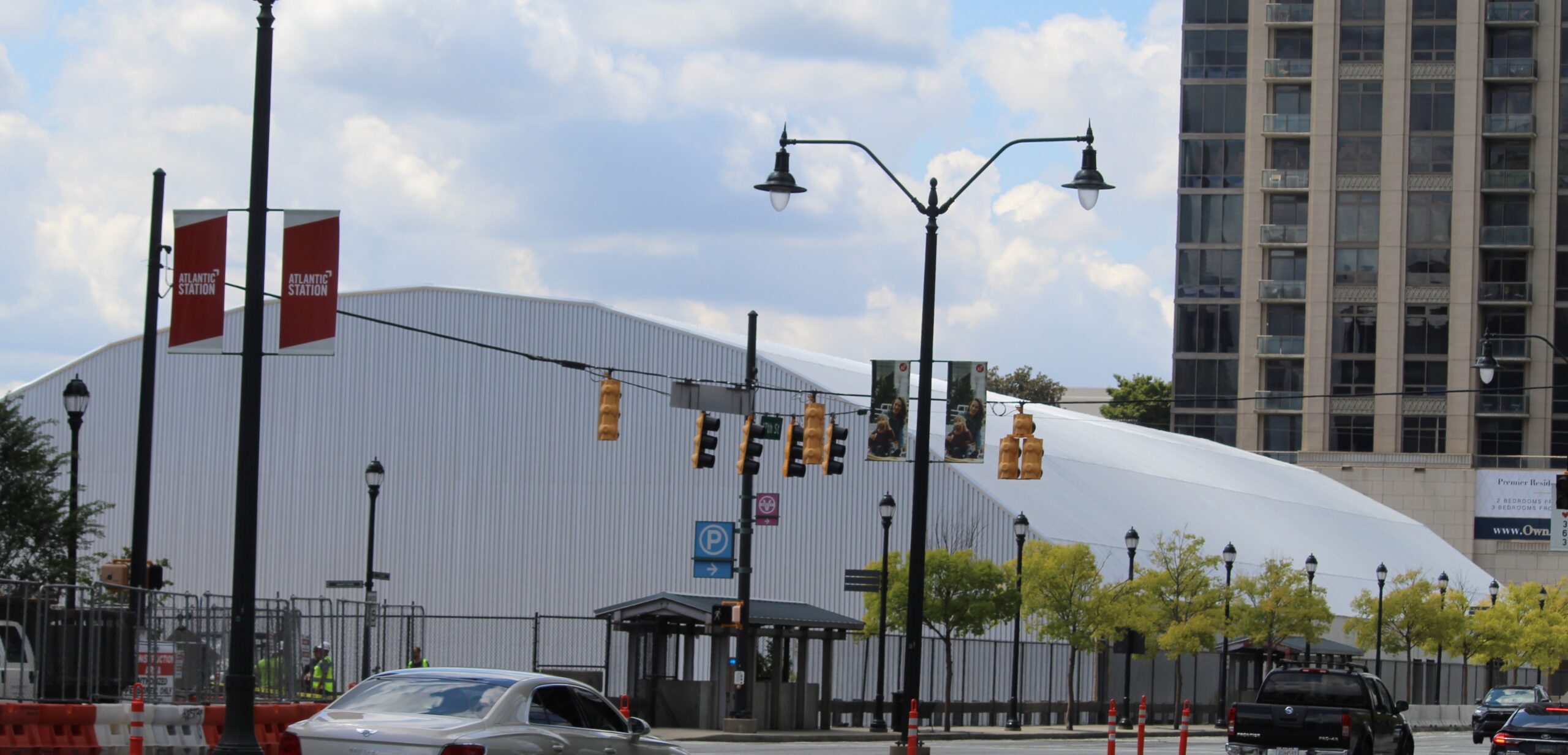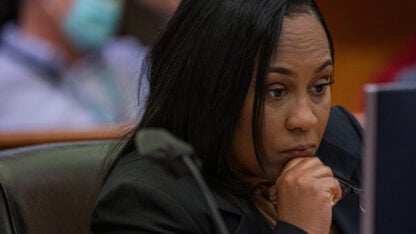For Overtime Elite, the phrase “less is more” is somewhat of an unofficial mantra.
Two dozen high school-age athletes will arrive in Atlanta this month to be a part of Overtime’s new professional basketball development program. Players will attend classes, train and play at a new facility that’s set to open soon at Atlantic Station.
They’ll also receive a salary, starting at $100,000.
Brandon Williams, a former NBA player and executive who serves as Head of Basketball Operations for OTE, says the program is designed to provide top-level competition, nutrition and training.
“We’re trying to save the hard miles on their body,” said Williams. He says many young athletes who want to become professional spend their time playing game after game against competition that doesn’t challenge them, or in front of coaches who can’t provide that extra level of instruction.
“There’s stories of finishing one tournament and another starting up before the last one finished,” said Williams. “It’s barnstorming, it’s hopping teams, it’s no preparation. In all of that, what’s lost is a continuity of understanding the health of the player.”
Williams says OTE athletes will play exhibitions against nationally-ranked elite high school teams, take part in international competition and play games against each other. He says that will allow athletes to get in front of NBA scouts and executives, a luxury not afforded high school basketball players.
In addition to basketball, Williams says players will receive a customized academic experience. The goal is to prepare athletes for every part of the professional experience — from playing to business savvy to public speaking experience.
“Our kids are dreamers and so are we,” said Williams. “But we’re adults and we’re quite aware that everyone doesn’t land at the No. 1 pick [in the NBA draft]. But that’s not the only measure of success.”
Williams says lower round draft picks as well as those signed as a free agent, as he was, can still make a good NBA career. He says international basketball also provides good pay and a chance to see different cultures.
Aaron Ryan is Overtime Elite’s president and commissioner. He also has experience as an NBA executive. He says OTE has gotten the attention of investors through its video and social media posts.
“There’s an opportunity to connect young people to sports in new way,” said Ryan. “I think it’s 7 percent of the NBA is now invested in Overtime. We have some incredible investors who see the path forward and recognize the opportunity.”
To maintain a new facility and pay two-dozen athletes, OTE will have to keep raising money.
“We’re relying on building a business surrounding everything from sponsorship to media rights to licensing and certainly to find other streams of revenue that every other sports property and sports team looks to monetize,” said Ryan.
Ryan says the facility, which remains under construction at Atlantic Station, will house three basketball courts. Two of them will be for practice while the third will be a “digital-first sound studio” where the league will play and broadcast games. He says the building will also house OTE’s production area, business operations and academic facilities.
“Atlanta is an incredible market,” Ryan said. “Rich history in sports, specifically in basketball. It is a diverse population, it’s a hub for content and commerce in the Southeast. I can’t think of a better market for us to be in.”
Nineteen of the 24 players who will make up the first group of players at Overtime Elite have been signed. It’s a combination of international and American athletes. All are male. Ryan says Overtime has a media channel dedicated to girls’ and women’s basketball, and he says there’s room for growth with OTE.
“The women’s game is stronger than it’s ever been, coming off the Olympic gold medal for the U.S.,” said Ryan. “Engaging organizations throughout the ecosystem — including those that involve women is — a major priority for us as an organization.”









